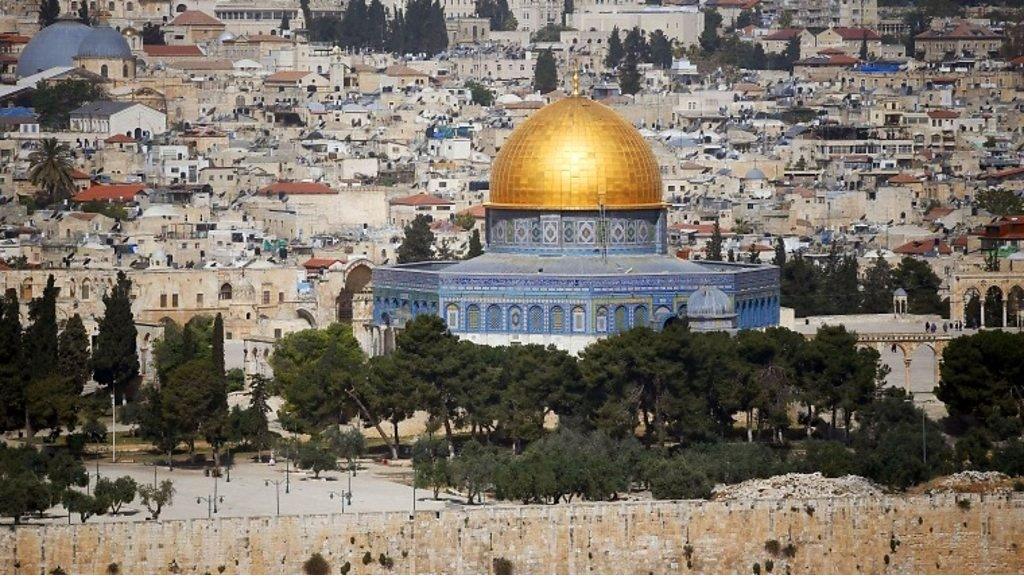Trump threatens to stop aid to Palestinians
- Published
Trump: "I don't know that [peace talks] will ever take place"
US President Donald Trump has threatened to halt aid to the Palestinians if they do not agree to take part in peace talks.
The state department confirmed he was talking about aid for economic and security assistance.
Mr Trump accused the Palestinians of "disrespecting" the US, and said: "Why should we do something for them when they do nothing for us?"
The Palestinians have rejected the US as a neutral broker in peace talks.
They are furious at Washington's controversial decision in December to recognise Jerusalem as the capital of Israel.
Former Palestinian negotiator Saeb Erekat said of the US president's latest comments: "Trump could buy many things with his money, but he won't be able to buy the dignity of our nation."
Why the focus on Palestinian aid?
Speaking at the World Economic Forum in Davos in Switzerland, Mr Trump said the US gives the Palestinians "hundreds of millions of dollars in aid and support" a year.
He chastised the Palestinian leadership for "disrespecting... our great Vice-President" Mike Pence by refusing to meet with him in the region earlier in the week.
And he said he was the first US president to link the issue of aid funding to the peace process.
"That money is on the table and it's not going to them unless they sit down and negotiate peace," he said, sitting beside Israeli Prime Minister Benjamin Netanyahu.
"I can tell you that Israel does want to make peace and they're [the Palestinians] going to have to want to make peace too or we're going to have nothing to do with it any longer."
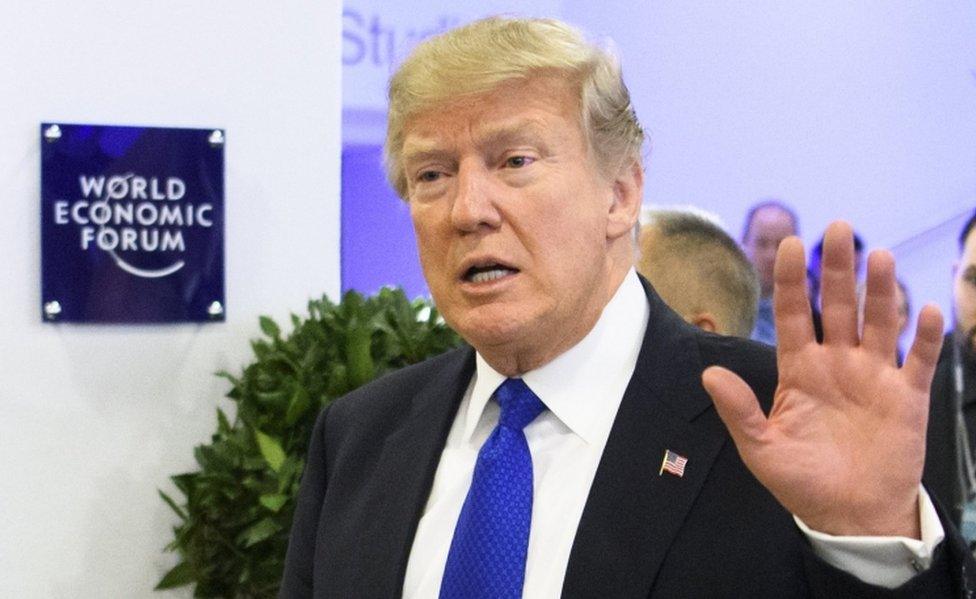
Mr Trump accused Palestinian leaders of "disrespecting" US Vice-President Mike Pence
The US announced earlier this month that it was withholding more than half of a tranche of funding for the UN agency supporting Palestinian refugees, amounting to about $65m (£46m).
But the US state department later confirmed this was not the aid Mr Trump was referring too. He was instead talking about bilateral funding for economic support and some security training.
US bilateral aid to the Palestinians amounted to $260m in 2016. By contrast, Israel receives more than $3bn in military aid per year from the US.

Aid as a bargaining tool
Barbara Plett Usher, BBC News, State Department Correspondent
This seems to be the first time the White House has used aid as a bargaining chip to try to force the Palestinians to negotiate peace.
It's one way to "shake things up" in hopes of getting people "back to the table," according to the state department spokesperson Heather Nauert.
There would be at least a tremor if the US withheld the bilateral aid. Most of it goes to economic development projects, though some is also used to train security forces.
But the practical outcome of Mr Trump's statement might be limited. Israel needs the PA to run the occupied territories and may counsel against weakening it. Politically this has made the Palestinians even more adamant about rejecting sole US leadership of any peace talks.
Mr Trump's manoeuvre has also underscored the failure of President Mahmoud Abbas, who staked everything on the US-led process and now might have less than nothing to show for it. Perhaps this will be what it takes to "shake up" the ossified Palestinian leadership.

What about the peace process?
The US president said his administration had a "proposal for peace" that was "a great proposal for the Palestinians" and suggested Israel was prepared to make some concessions.
"You won one point," he said to Mr Netanyahu, referring to Jerusalem, "and you'll give up some points later on in the negotiation, if it ever takes place."
But he added: "I don't know that they [peace talks] will ever take place."
The last round of on-off peace talks between the two sides collapsed amid acrimony in April 2014.
What did Trump say about Jerusalem?
Mr Trump stood by his decision to recognise Jerusalem as Israel's capital - a move that broke with decades of a US policy of neutrality on the issue and put it out of step with the rest of the international community.
He told Mr Netanyahu: "Israel has always supported the United States so what I did with Jerusalem was my honour."
And he reiterated his view that by taking "Jerusalem off the [negotiating] table... we don't have to talk about it any more" - suggesting it could move forward the peace process.
"They [the Palestinians] never got past Jerusalem," he said.
Why the ancient city of Jerusalem is so important
The status of Jerusalem goes to the heart of the Israeli-Palestinian conflict.
Israel regards Jerusalem as its "eternal and undivided" capital, while the Palestinians claim East Jerusalem - occupied by Israel in the 1967 Middle East war - as the capital of a future state.
What do the Palestinians say?
The Palestinian ambassador to the US said they were not being "disrespectful of anybody... we were just respectful of our rights and defending our internationally endorsed rights".
Dr Husam Zomlot admitted that the lack of US aid would "directly affect hundreds of thousands, if not millions, of innocent, vulnerable people all over the region".
But, he told the BBC, "financial pressure for coercive political agendas does not work.. especially when our position is supported by the international community".
He said Mr Trump had not just "taken Jerusalem off the table, he has taken the table altogether". He called for an international table "that can actually deliver us where we want to go".
Mr Abbas has dismissed previous threats by Mr Trump to cut US aid as "blackmail". He has also said he would not accept any peace plan proposed by the US.
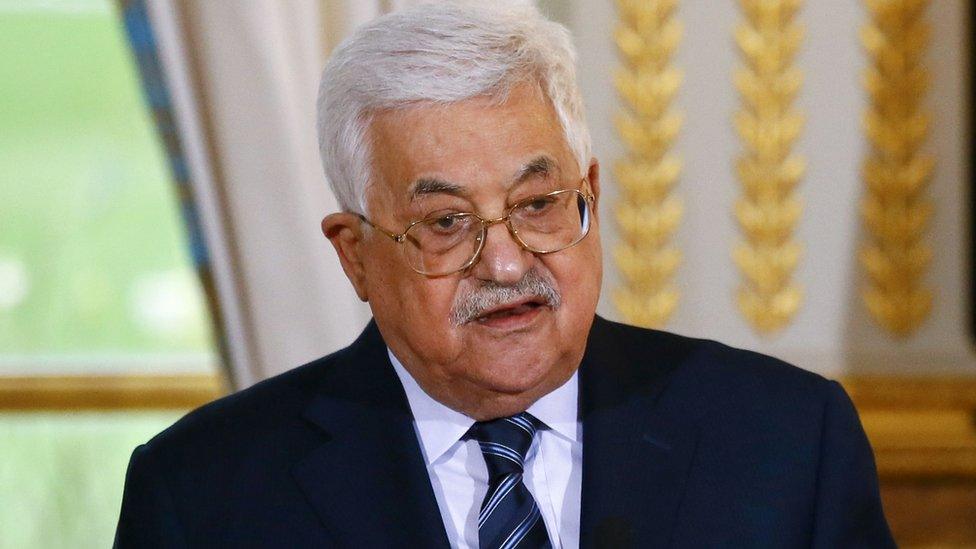
Palestinian President Mahmoud Abbas has accused Donald Trump of "blackmail" over past threats to cut US aid
What does Israel say?
Prime Minister Netanyahu was effusive in his praise of Mr Trump over his decision to recognise Jerusalem as Israel's capital.
"By recognising history, you've made history, and we will always remember that," he told the US president.
He later told a meeting at Davos that "under any peace agreement the capital of Israel will continue to be in Jerusalem".
He also said that "the Palestinians should have all the power to govern themselves but none of the power to threaten us".
"In any political arrangement the Jews must retain security control in the area, because otherwise you'll have [the Islamic State group] ... We have a mosaic of failed states in the Middle East, and we don't want another one," he continued.

Find more on this story here:
- Published17 January 2018
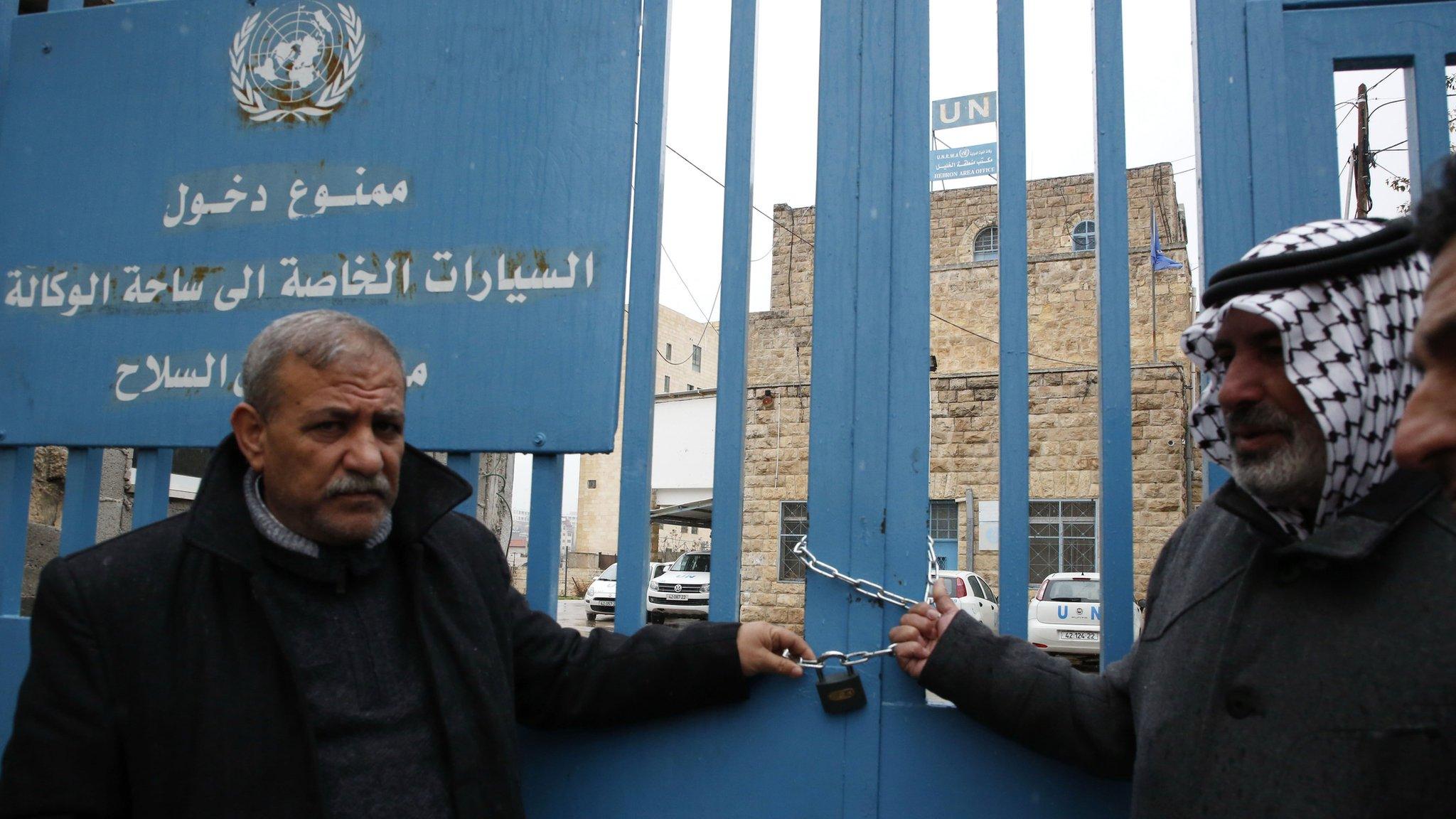
- Published5 January 2018
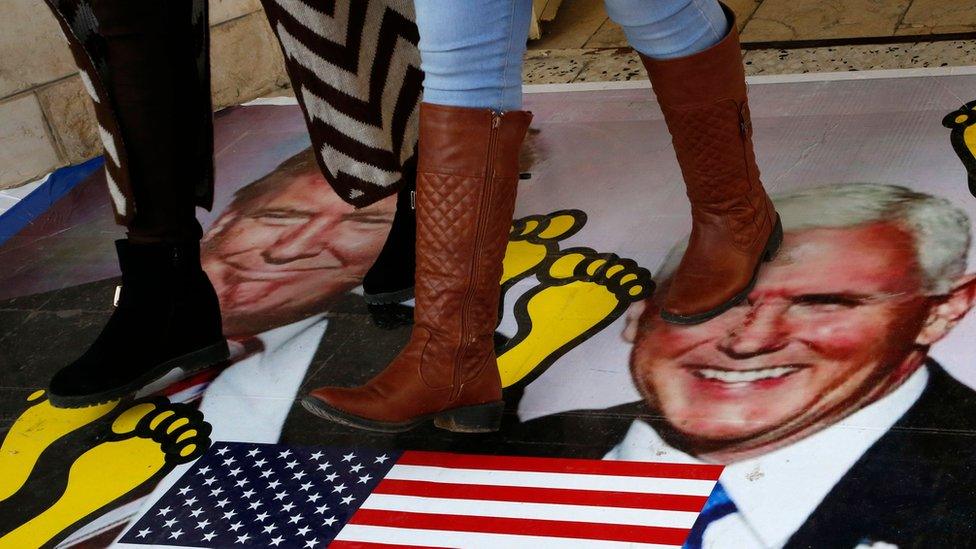
- Published8 December 2017
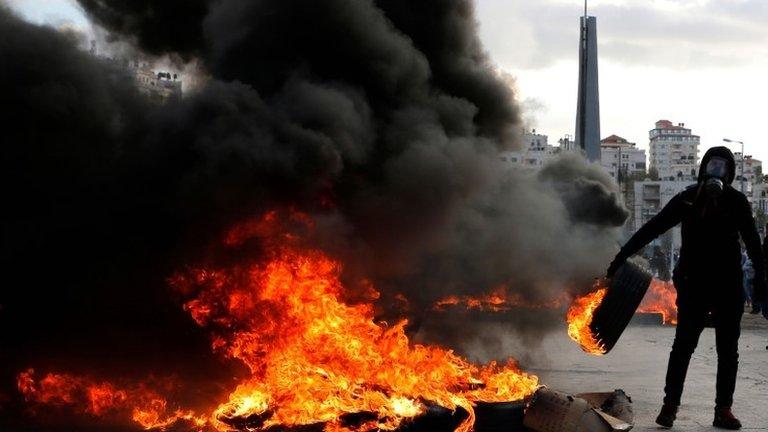
- Published7 December 2017
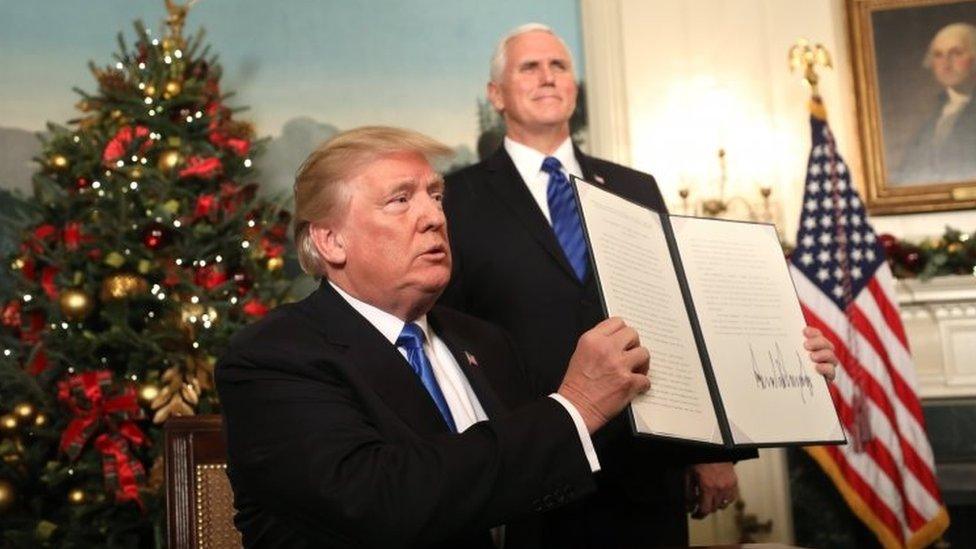
- Published14 May 2018
